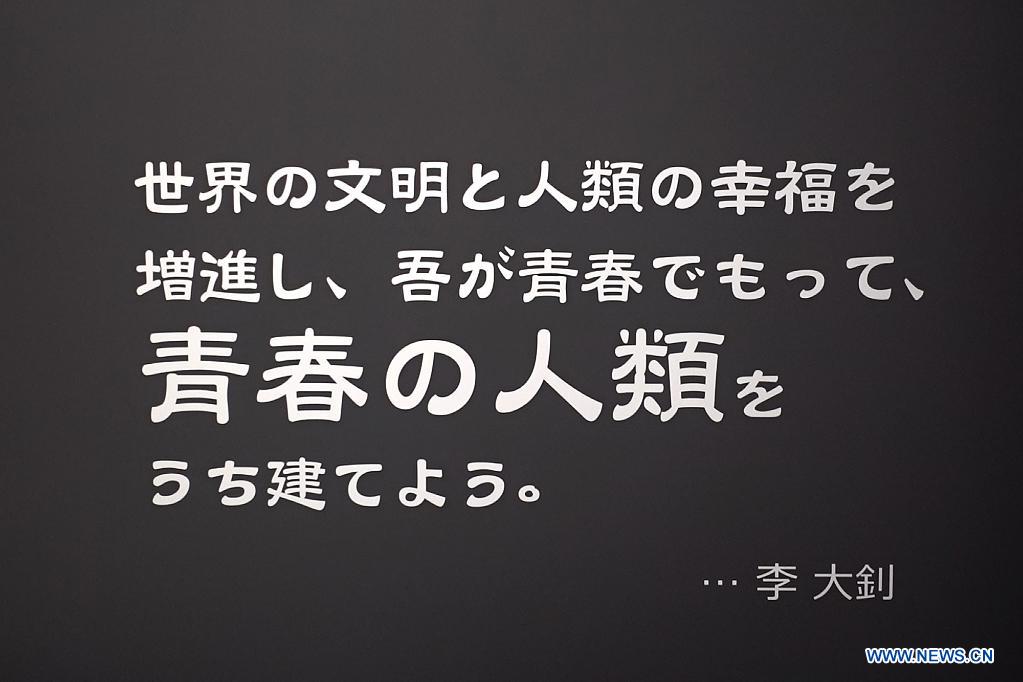Tracing a CPC pioneer's youth in Japan
 0 Comment(s)
0 Comment(s) Print
Print E-mail Xinhua, May 5, 2021
E-mail Xinhua, May 5, 2021

On a wall of the historical memorial hall of Waseda University in Tokyo, Japan, are lines of words quoted from an article titled Youth, written in the spring of 1916 by Li Dazhao, a Chinese student who later became a pioneer of the Communist Party of China.
At a time when China was impoverished and bullied by Western powers, Li encouraged Chinese youth to fight for a better future, lighting a beacon of hope for building a stronger China for the Chinese people.
In the winter of 1913, Li graduated from the former Beiyang Special School of Law before furthering his studies in Japan. In September 1914, he formally began his studies of political economy at Waseda.
On a scanned copy of Li's student card provided by the Chinese alumni association of Waseda, are details including his address, place of birth and other basic information, along with his enrollment information.
Fumihiko Kawajiri, a professor at Aichi Prefectural University and an expert on Li Dazhao in Japan, said there is no evidence Li took the university's entrance examination, yet he was nonetheless admitted.
Included in a book written by Honorary Professor Hikotaro Ando at Waseda are Li's transcripts as well as the 11 subjects he had studied and their corresponding teachers. "Compared with other Japanese students, Li Dazhao's performance was quite good," Ando commented.
According to Kawajiri, Li had studied Japanese before going to Tokyo. After arriving in Japan, he actively studied English at the Young Men's Christian Association, or the YMCA, where he resided.
In January 1915, during Li's first year of study at Waseda, the then Japanese Prime Minister Shigenobu Okuma and his cabinet secretly proposed the "Twenty-one Demands" against China. Chinese students studying in Japan strongly responded, and Li also actively joined the protests.
They refused to take courses taught by Kazutami Ukita, a strong advocate of the "Twenty-one Demands," and some other Japanese professors, and published articles criticizing Ukita and others.
In a library yard at Waseda is a bronze sculpture of Isoo Abe under a cherry blossom tree. Abe was the founder of the university's baseball team.
He was also a pioneer who introduced socialism to Japan. Although Li did not directly take his course, some researchers believed that Abe had a great influence on Li. Ando believed that Abe's thoughts sparked the transformation of Li's thinking towards socialist ideology.
In February 1916, Li's student card was marked with his departure from the school, with the reason for dropping out covered with a seal that reads, "long absence expulsion."
In April 1916, Li, along with hundreds of Chinese students, terminated their studies at Japanese universities and returned to China.
In 1927, Li sacrificed his young life, becoming one of the first martyrs to the cause of spreading Marxism in China.






Go to Forum >>0 Comment(s)